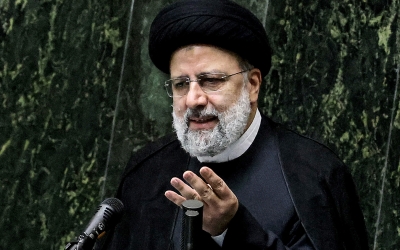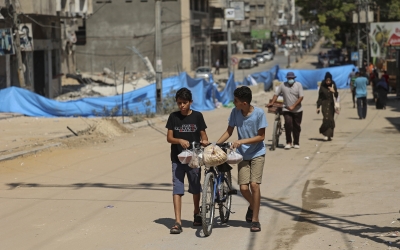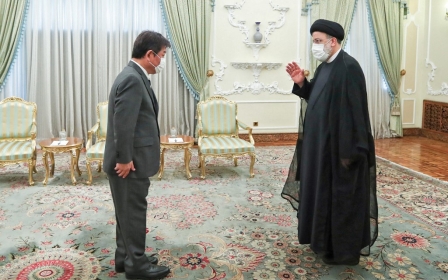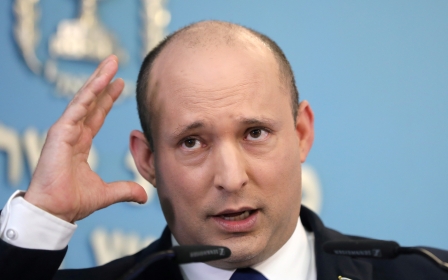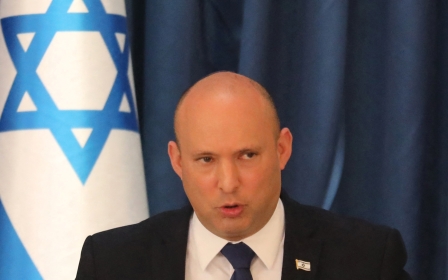US will ensure Israel can defend itself against Iran, says secretary of defence

US Secretary of Defence Lloyd Austin said Washington's commitment to Israel's security was "steadfast and ironclad" and the Biden administration would supply Israel with all the necessary means to defend itself against Iran.
Speaking to reporters at the Pentagon ahead of his meeting with Israeli Prime Minister Naftali Bennett on Wednesday, Austin said the defence department was "committed to maintaining Israel's qualitative military edge, and to ensur[ing] that Israel can defend itself against threats from Iran, its proxies, and terrorist groups".
Bennett is scheduled to have his first face-to-face meeting with President Joe Biden on Thursday. He has already held a series of meetings with top US officials, including Secretary of State Antony Blinken.
Rising tensions with Iran have been a key priority during the premier's visit. Earlier this month the US claimed Tehran was responsible for the attack on an Israeli-linked tanker in the Gulf of Oman which resulted in the deaths of two crew members. Iran has denied involvement.
"Iran must be held accountable for acts of aggression in the Middle East and on international waters," Austin said.
Before his visit to Washington, Bennett said one of the key aims of the trip would be to lobby the US not to re-enter the Iran nuclear deal. "I will tell President Biden that it is time to stop the Iranians, to stop this thing, not to give them a lifeline in the form of re-entering into an expired nuclear deal," the Israeli premier said on Sunday.
Signed in 2015, the agreement lifted sanctions against Tehran after it scaled back its nuclear programme. The nuclear accord capped the amount of uranium Tehran can refine at 3.67 percent.
In 2018, the Trump administration withdrew from the nuclear agreement and reimposed crippling sanctions on Tehran. While Iran initially continued to abide by the deal, it has reduced some of its commitments since 2019.
Since Biden assumed office in January, months of nuclear negotiations have been held in Vienna. Discussions were halted in June before the outcome of the Iranian presidential election, and the US has urged Iran's new President Ebrahim Raisi, a conservative hardliner, to come back to the talks.
Replenish Iron Dome
According to a post-meeting summary by Pentagon press secretary John Kirby, Iran was the primary topic of discussion during Wednesday's talks, and Austin and Bennett agreed to cooperate on air and missile defence and anti-drone systems.
Israel is the United States' closest ally in the Middle East and the biggest single recipient of foreign military funding, which in 2020 amounted to $3.8bn in assistance.
The US currently has a 10-year memorandum of understanding with Israel signed during the Obama administration to provide $33bn in foreign military funding and $5bn in ballistic missile defence research.
Backed by US funding, Israel's Iron Dome missile system has become a centrepiece of the country's defence and has seen heavy use in the last few months with tensions running high in the region.
The system proved crucial during Israel's latest offensive on Gaza in May by intercepting roughly 90 percent of the rockets fired by Hamas. According to a tally by Middle East Eye, at least 260 Palestinians and 12 Israelis were killed during the escalation.
Austin said the Biden administration was working to fulfil Israel's request for $1bn in emergency funding to replenish the Iron Dome.
"The administration is committed to ensuring that Iron Dome can defend Israeli civilian population centers targeted by terrorist attacks," he said, adding that the system, "is going to save more innocent lives."
The Iron Dome was developed by the defence company Rafael. It is mainly deployed in Israel to fire and intercept missiles and rockets launched from the Gaza Strip towards Israeli settlements. But it is also deployed at the borders with Lebanon and Syria, at the occupied Golan Heights in the north.
Middle East Eye delivers independent and unrivalled coverage and analysis of the Middle East, North Africa and beyond. To learn more about republishing this content and the associated fees, please fill out this form. More about MEE can be found here.


